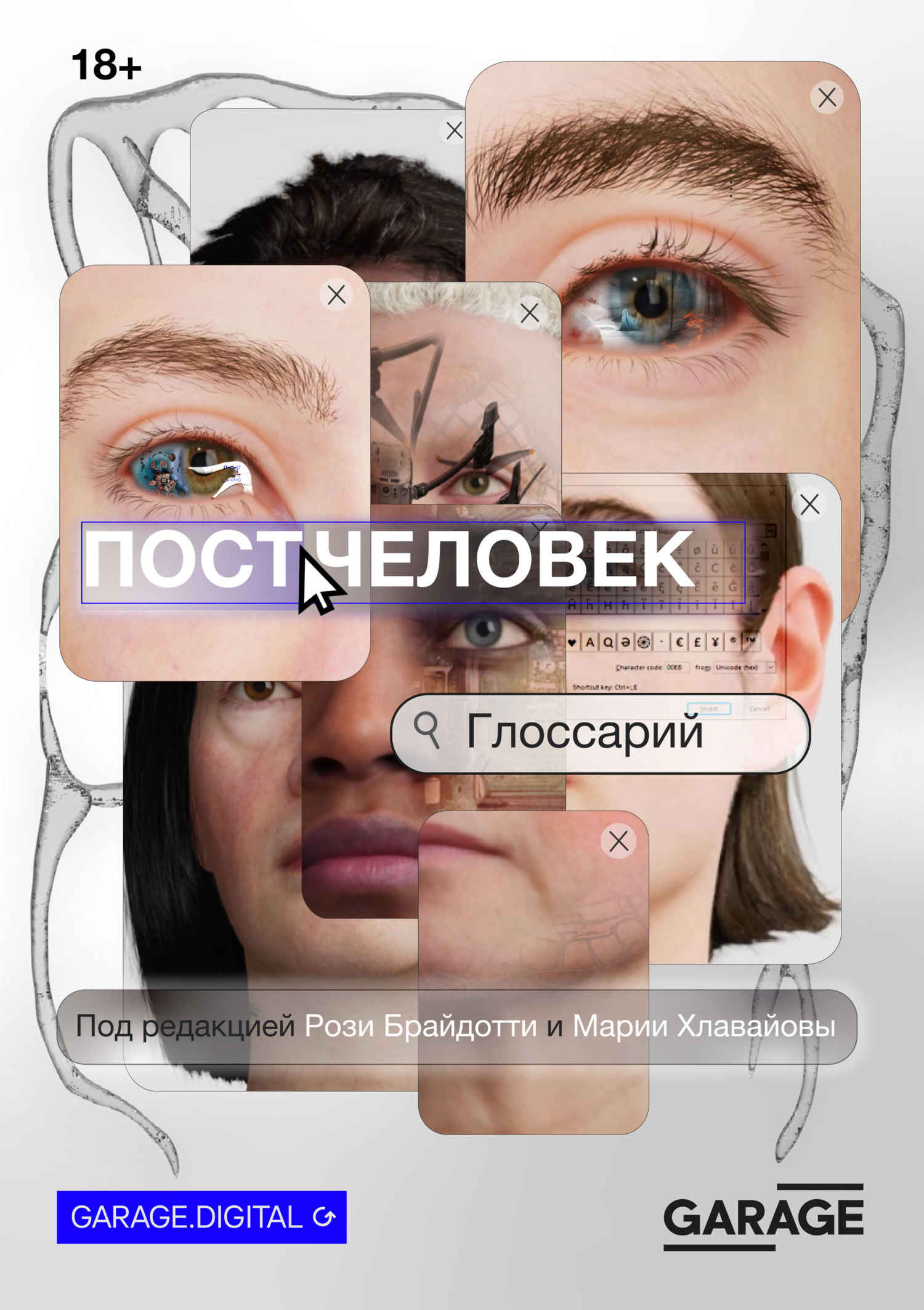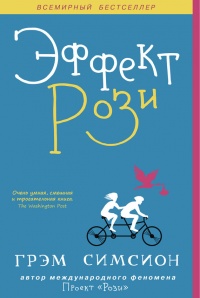Читать книгу - "Постчеловек: глоссарий - Рози Брайдотти"
Аннотация к книге "Постчеловек: глоссарий - Рози Брайдотти", которую можно читать онлайн бесплатно без регистрации
В свете новых вызовов, охватывающих современное общество, концепт человека как таковой, а также проблема его взаимодействия с искусством, точными и гуманитарными науками претерпели существенные изменения. Данный процесс, называемый «постчеловеческим состоянием», подвержен влиянию неолиберальной экономики, глобального капитализма, миграционной политики, технологического прогресса, экологических проблем, борьбы с терроризмом и т. д. «Постчеловек: глоссарий» представляет собой сборник ключевых терминов постчеловечества в контексте современного искусства и интеллектуальной сферы. Он охватывает такие широкие темы, как антропоцен, капиталоцен, экология, цифровой активизм, алгоритмическая культура и нечеловеческое. В глоссарии представлены краткие определения этих понятий и исследуются художественные, интеллектуальные и активистские подходы к решению сложных проблем «постчеловеческого состояния». Сборник помогает разобраться в изменениях, которые произошли в искусстве в контексте современных событий, связывает различные дисциплины, аудитории и критические сообщества. Рози Брайдотти (род. 1954) – философ и теоретик феминизма, ее теоретические работы повлияли на становление постгуманизма. Мария Хлавайова (род. 1971) – куратор и теоретик, основательница и художественный директор пространства BAK (Утрехт).
Gray, С. H. (2001), Cyborg Citizen: Politics in the Posthuman Age, New York and London: Routledge.
Grayson, R. (2015), ‘The End(s) of Post Internet Art’, Art Monthly, 389: n.p.
Greene, B. (2005), The Fabric of the Cosmos: Space, Time, and the Texture of Reality, New York: Vintage.
Greene, B. (2011), The Hidden Reality: Parallel Universes and the Deep Laws of the Cosmos, New York: Random House.
Greenwald, G. and E. MacAskill (2013), ‘NSA Prism Program Taps in to User Data of Apple, Google and Others’, Guardian, 7 June, http://www.theguardian.com/world/2013/jun/06/us-tech-giants-nsa-data [accessed 4 May 2016].
Greer, L. (2008), ‘Questioning Digital Citizenship: The Answer to Economic and Political Inequity?’, N.Y.U. Journal of Legislation and Public Policy, 11(651): 651–69.
Gregg, M. and G. Seigworth, G. (2010), The Affect Theory Reader, Durham, NC: Duke University Press.
Gregory, D. (2011), ‘From a View To Kill: Drones and Late Modern War’, Theory, Culture and Society, 28(7–8): 188–215.
Grewal, I. (2014), ‘American Humanitarian Citizenship: The “Soft” Power of Empire’, in S. Ponzanesi (ed.), Gender, Globalisation and Violence: Postcolonial Conflict Zones, 64–81, London: Routledge.
Griffiths, P. (1997), What Emotions Really Are, Chicago: University of Chicago Press.
Grimaldi, N. (2011), L’Inhumain, Paris: Pressess Universitaries de France.
Grosz, E. (1994), Volatile Bodies: Towards a Corporeal Feminism, Bloomington and Indianapolis: Indiana University Press; Sidney: Allen & Unwin.
Grosz, E. (2004), Nick of Time: Politics, Evolution and the Untimely, Durham, NC: Duke University Press.
Grosz, E. (2011), Becoming Undone: Darwinian Reflections on Life, Politics, and Art, Durham, NC: Duke University Press.
Groys, B. (2010), The Communist Postscript, London: Verso.
Gruen, L. and K. Weil, K. (2012), ‘Animal Others – Editors’ Introduction’, Hypatia, 27(3): 477–87.
Grusin, R. (2015), ‘Radical Mediation’, Critical Inquiry, 42(1): 124–48.
Gržinić, M. and Š. Tatlić (2014), Necropolitics, Racialization, and Global Capitalism: Historicization of Biopolitics and Forensics of Politics, Art, and Life, Lanham, MD: Lexington Books.
Guattari, F. ([1989] 2000/2008), The Three Ecologies, London and New Brunswick: The Athlone Press; London: Continuum.
Guattari, F. ([1989] 2013), ‘Architectural Enunciation’, in Schizoanalytic Cartographies, 231–9, London: Bloomsbury.
Guattari, F. ([1992] 1995), Chaosmosis: An Ethico-Aesthetic Paradigm, Bloomington and Indianapolis: Indiana University Press.
Guattari, F. (1996), Soft Subversions, New York: Semiotext(e).
Guattari, F. (2011), The Machinic Unconscious, New York: Semiotext(e).
Guattari, F. (2012), Schizoanalytic Cartographies, New York: Bloomsbury.
Guattari, F. (2013), ‘Qu’est-ce que l’ecosophie?’, in Qu’est-ce que l’ecosophie? 71–9, Fecamp: Lignes.
Guess, С. and K. Magee (2015), With Animal, Pittsburgh: Black Lawrence Press.
Gunderson, L. and С. S. Holling (eds) (2002), Panarchy: Understanding Transformations in Human and Natural Systems, Washington DC: Island Press.
Gunkel, D. (2012), The Machine Question, Cambridge, MA: MIT Press.
Gunnell, T. (2007), Masks and Mumming in the Nordic Area, Uppsala: Kungl, Gustav Adolfs Akademien for Svensk Folkkultur.
Habermas, J. (2003), The Future of Human Nature, Cambridge: Polity Press.
Hadziselimovic, N., V. Vukojevic, F. Peter, A. Milnik, M. Fastenrath, B. G. Fenyves, P. Hieber, P. Demougin, С. Vogler, J. F. Dominique and A. Papassotiropoulos (2014), ‘Forgetting is Regulated via Musashi-mediated Translational Control of the Arp2/3 Complex’, Cell, 156(6): 1153–66.
Haff, P. K. (2014), ‘Technology as a Geological Phenomenon: Implications for Human Well-Being’, in С. N. Waters, J. A. Zalasiewicz, M. Williams, M. A. Ellis and A. M. Snelling (eds), A Stratigraphical Basis for the Anthropocene, 301–9, London: Geological Society.
Haidt, J. (2001), ‘The Emotional Dog and Its Rational Tail: A Social Intuitionist Approach to Moral Judgment’, Psychological Review, 108(4): 814–34.
Hakli, R. (2014), ‘Social Robots and Social Interaction’, in J. Seibt, R. Hakli and M. Norskov (eds), Sociable Robots and the Future of Social Relations, 105–115, Amsterdam: IOS Press.
Hakli, R. and J. Seibt (eds) (2016), Sociality and Normativity for Robots, Heidelberg: Springer.
Halberstam, J. J. (2012), Gaga Feminism: Sex, Gender and the End of Normal, Boston: Beacon Press.
Halberstam, J. and I. Livingston (eds) (1995), Posthuman Bodies, Bloomington and Indianapolis: Indiana University Press.
Haley С. (2009), Camps: A Guide to 21st-Century Space, Cambridge, MA: MIT Press.
Hallegatte, S., M. Bangalore, L. Bonzanigo, M. Fay, T. Kane, U. Narloch, J. Rozenberg, D. Treguer and A. Vogt-Schilb (2016), Shock Waves: Managing the Impacts of Climate Change on Poverty, Washington DC: World Bank, https://openknowledge.worldbank.org/bitstream/handle/10986/22787/9781464806735.pdf [accessed 10 January 2016].
Hamilton, С. (2014), Earthmasters: The Dawn of the Age of Climate Engineering, New Haven: Yale University Press.
Hamilton, С. (2015), ‘Getting the Anthropocene So Wrong’, The Anthropocene Review, 2(2): 1–6.
Hanafin, P. (2014), ‘Law’s Nomadic Subjects: Towards a Micropolitics of Posthuman Rights’, in B. Blaagaard and I. van der Tuin (eds), The Subject of Rosi Braidotti: Politics and Concepts, 214–29, London: Bloomsbury.
Hansell, G. R. and W. Grassie (eds) (2011), Transhumanism and Its Critics, Philadelphia: Metanexus.
Hansen, С. and T. Griffiths (2012), Living with Fire, Collingwood: CSIRO.
Hansen, M. B. N. (2013), ‘Ubiquitous Sensation: Toward an Atmospheric, Collective, and Microtemporal Model of Media’, in U. Ekman (ed.), Throughout: Art and Culture Emerging with Ubiquitous Computing, 63–88, Cambridge, MA: MIT Press.
Hansen, M. B. N. (2015), Feed-Forward: On the Future of Twenty-First-Century Media, Chicago: Chicago University Press.
Haraway, D. (1986), ‘Primatology is Politics by Other Means’, in R. Blier (ed.), Feminist Approaches to Science, 77–118, Oxford: Permagon Press.
Haraway, D. (1988), ‘Situated Knowledges: The Science Question in Feminism and the Privilege of Partial Perspective’, Feminist Studies, 14(3): 575–99.
Haraway, D. (1989), Primate Visions: Gender, Race, and Nature in the World of Modern Science, New York: Routledge.
Haraway, D. (1989), Gender, Race, and Nature in the World of Modern Science, New York: Routledge.
Haraway, D. ([1985] 1991), ‘A Cyborg Manifesto: Science, Technology and Socialist-Feminism in the Late Twentieth Century’, in Simians, Cyborgs and Women: The Reinvention of Nature, 149–81, London: Routledge.
Haraway, D. (1991), Simians, Cyborgs and Women: The Reinvention of Nature, New York: Routledge; London: Free Association.
Haraway, D. (1997), Modest_Witness@Second_Millenium.FemaleManc_Meets_OncoMouse™. Feminism and Technoscience, London and New York: Routledge.
Haraway, D. (2003), The Companion Species Manifesto: Dogs, People, and Significant Otherness, Chicago: Prickly Paradigm Press.
Haraway, D. ([1992a] 2004a), ‘The Promises of Monsters: A Regenerative Politics for Inappropriate/d Others’, in The Haraway Reader, New York and London: Routledge.
Haraway, D. ([1992b] 2004b), ‘Otherworldly
Прочитали книгу? Предлагаем вам поделится своим впечатлением! Ваш отзыв будет полезен читателям, которые еще только собираются познакомиться с произведением.
Оставить комментарий
-
 Илья12 январь 15:30
Книга прекрасная особенно потому что Ее дали в полном виде а не в отрывке
Горький пепел - Ирина Котова
Илья12 январь 15:30
Книга прекрасная особенно потому что Ее дали в полном виде а не в отрывке
Горький пепел - Ирина Котова
-
 Гость Алексей04 январь 19:45
По фрагменту нечего комментировать.
Бригадный генерал. Плацдарм для одиночки - Макс Глебов
Гость Алексей04 январь 19:45
По фрагменту нечего комментировать.
Бригадный генерал. Плацдарм для одиночки - Макс Глебов
-
 Гость галина01 январь 18:22
Очень интересная книга. Читаю с удовольствием, не отрываясь. Спасибо! А где продолжение? Интересно же знать, а что дальше?
Чужой мир 3. Игры с хищниками - Альбер Торш
Гость галина01 январь 18:22
Очень интересная книга. Читаю с удовольствием, не отрываясь. Спасибо! А где продолжение? Интересно же знать, а что дальше?
Чужой мир 3. Игры с хищниками - Альбер Торш
-
 Олена кам22 декабрь 06:54
Слушаю по порядку эту серию книг про Дашу Васильеву. Мне очень нравится. Но вот уже третий день захожу, нажимаю на треугольник и ничего не происходит. Не включается
Донцова Дарья - Дантисты тоже плачут
Олена кам22 декабрь 06:54
Слушаю по порядку эту серию книг про Дашу Васильеву. Мне очень нравится. Но вот уже третий день захожу, нажимаю на треугольник и ничего не происходит. Не включается
Донцова Дарья - Дантисты тоже плачут





